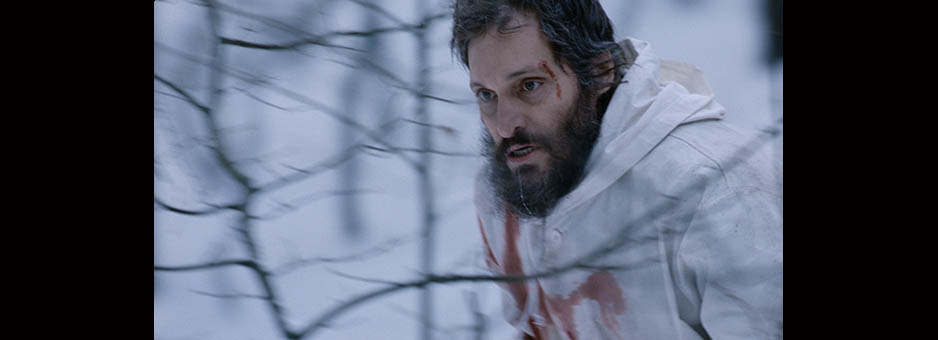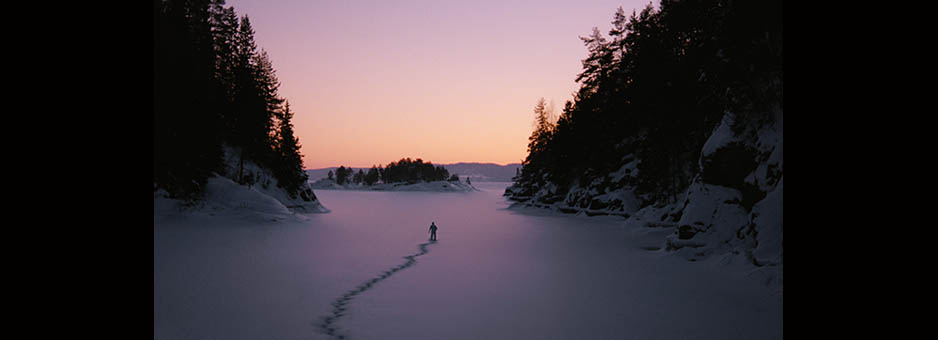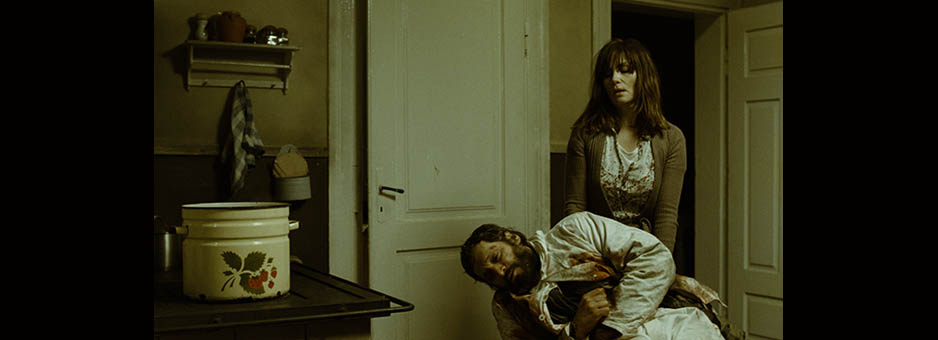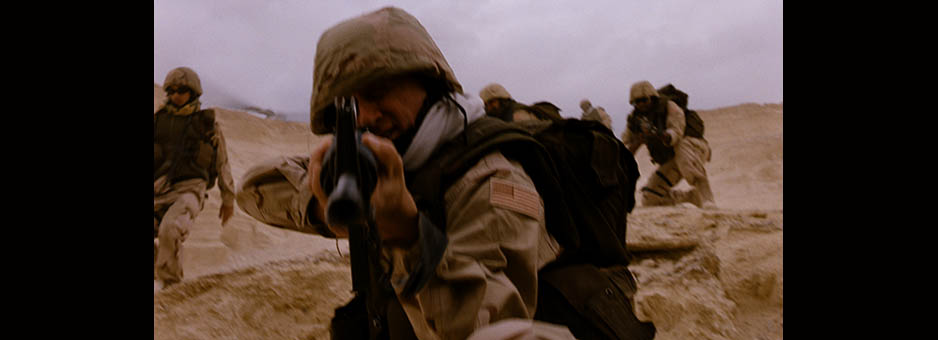Essential Killing
Poland's Alvernia Studios uses new Northlight-, Baselight- and Truelight-equipped 4K grading theatre to provide Hollywood calibre post services to independent filmmakers
KRAKOW, Poland—In the past, when filmmakers wished to give their films a true "studio quality" finish, it was usually necessary to travel to Hollywood or London and engage the services of one of a small handful of mainstay facilities equipped with the necessary state-of-the-art technology. No more. In recent years, facilities all over the globe and often far removed from traditional media centers have built sophisticated digital intermediate style finishing theatres. Equipped with the latest scanning, grading, colour management and finishing technology from FilmLight, these new theatres are making it possible for many more filmmakers to give their work the polished look of a major studio release.
A case point is Essential Killing, the new masterwork from Polish director Jerzy Skolimowski, which recently won the Special Jury Prize at the Venice Film Festival. A psychological thriller about a Taliban fighter named Mohammed (Vincent Gallo) who escapes from an American-run detention centre in Europe, the film was finished at Alvernia Studios in Krakow, Poland in its recently-built 4K grading theatre. Final post work was conducted entirely in 4K and included scanning the original 35mm film negative on a Northlight 2 scanner and colour grading via Baselight EIGHT. FilmLight's Truelight technology was used in integrating visual effects elements that arrived from an outside vendor, and in the production of deliverables, which included a DCP package, 35mm prints, and HD elements for home theatre.
Colour grading was performed by Glen Castinho, Alvernia Studios' Digital Intermediate Supervisor. "Along with the Northlight scanner, Baselight EIGHT and Truelight technology, the theatre features a Sony 4K projector, a projection screen measuring 10 X 4 metres, and an Autodesk Flame system with a Truelight SDI box," Castinho observes. "The room is fully integrated with the facility's central 160 Tb SAN allowing us to easily connect with our other editorial, visual effects and sound resources."
Skolimowski and Cinematographer Adam Sikora oversaw the initial grading sessions. Although Castinho describes the film as a realistic drama, it is set in extreme environments that presented tough grading challenges. Early scenes occur in the stark, desert mountains of Afghanistan (they were filmed in Israel), a landscape of blinding sunlight and crusty hills. The grade applied here, according to Castinho, is high contrast to emphasize the scorching heat. Later, the scene shifts to Eastern Europe where much of the action centers on a cat and mouse chase through wintry Polish countryside, as a barefoot Mohammed attempts to make his escape through the snow.
"There was a lot of snow in the film... from Norway, from Poland," Castinho recalls, "There were a lot of different textures. They used two camera units to shoot those scenes, so there were variations in the look. The light, also, was constantly changing. And we had to make it all blend seamlessly. It may look simple on screen, but matching the different looks and maintaining consistency is hard to do."
Castinho took advantage of Baselight's unsurpassed ability to manage 4K images to match looks and to make subtle enhancements to the imagery. Although, he notes, Skolimowski and Sikora did an exceptional job of capturing the look they wanted in camera, he used Baselight to fine tune details and highlight or subdue aspects of numerous individual shots. "It was a beautifully shot film and that allowed us to focus on making refinements," Castinho recalls. "It was all very subtle and realistic, because that is how the film is. For example, we intensified the color of blood on a soldier's hands. That would have been difficult to do on set, but Baselight made it easy."
"We used keys, layers, blurs... every tool available to us on this project," Castinho adds, "and yet, despite working at 4K, there were no breakdowns, no hanging problems. It was very smooth, fast and efficient."
Some of the film's most haunting moments involve dreamlike flashbacks depicting scenes from Mohammed's past life. As he becomes more exhausted during his flight, these images begin to invade his waking world. Castinho says that Skolimoswki had very specific ideas for how the flashback sequences should look, however the director was unable to attend those grading sessions as they conflicted with the film's sound mix in Dublin.
Castinho says that Truelight provided a way for them to continue their collaboration remotely. "The flashback sequences were very important to Skolimowski and we had a long discussion about it," he recalls. "I generated a few looks and used Truelight to prepare look up tables with print emulation and used that to create calibrated still frames in the form of JPEG files. The director was able to then review those in Dublin." By exchanging files in this way, Castinho was able to arrive at a basic look for the flashback sequences that he and Skolimowski furthered refined when he returned to Poland.
Truelight also played a vital role in the production of the 35mm film print and other deliverables. Castinho says that it was particularly important to Skolimowski that the film print matched what he had seen in the DI theatre. "I was confident that the look would match because of the care we took in setting up our projection system," Castinho explains. "We calibrate the projector for each film we do using a Truelight projector probe and process test footage in our lab."
When the grading and conforming process was finished, the digital master was sent to London, where a print was made for final approval by Skolimowski. "Glen's dedication and level of expertise with color grading contributed to the success of the film,"the director observes. "It was a pure joy working with him and witnessing the masterful control executed over any image at hand."
Castinho says that Essential Killing is a good showcase for Alvernia Studios' ability to deliver services such as 4K scanning and grading and high end visual effects that were previously beyond the reach of such films. "We like doing quality films like this," Castinho concludes, "We expect to be busy for a long time to come."
Related links
About Alvernia Studios
Based in Poland Alvernia Studios is a brand new filmmaking one-stop shop providing full service during the shooting period and postproduction facilities. The task of its production arm—Alvernia Production—is to produce their own films and coproduce international features for theatrical release. Alvernia offers state-of-the-art facilities for every stage of the filmmaking process.







